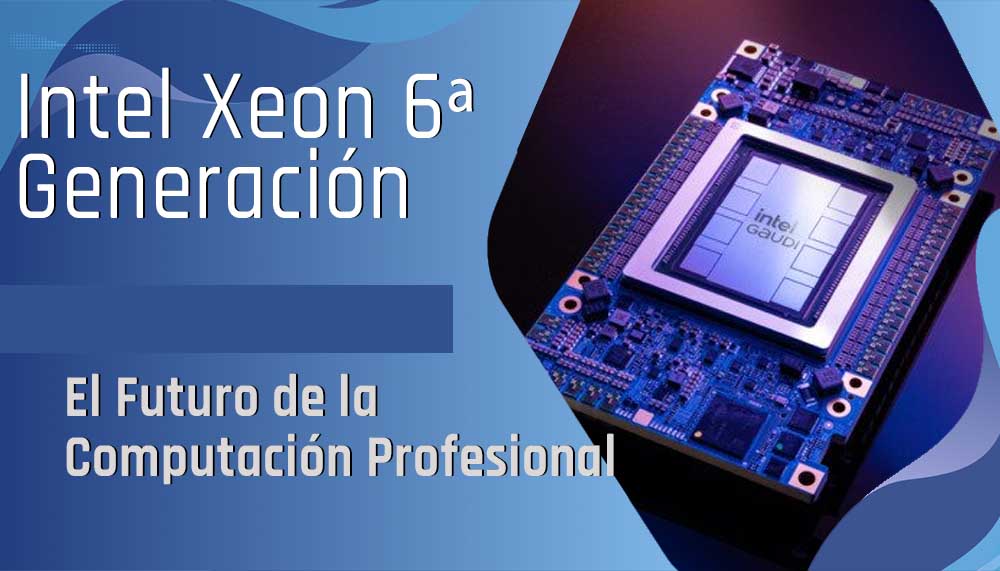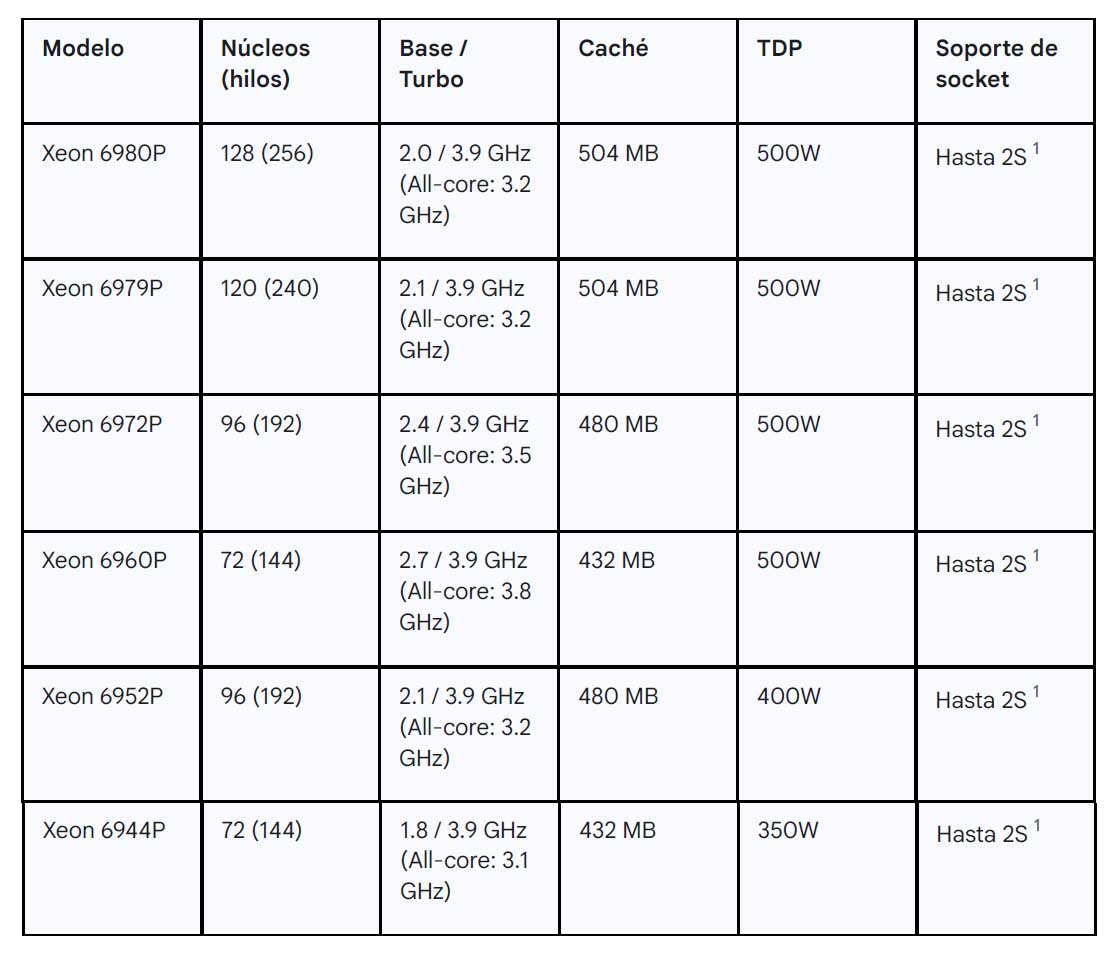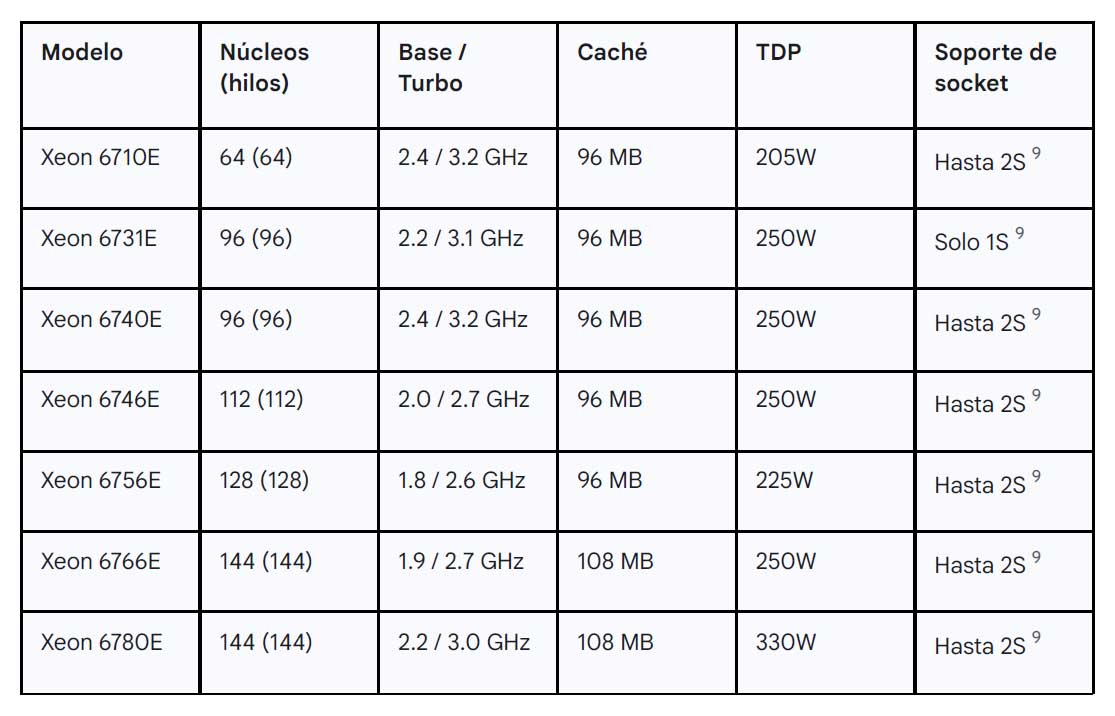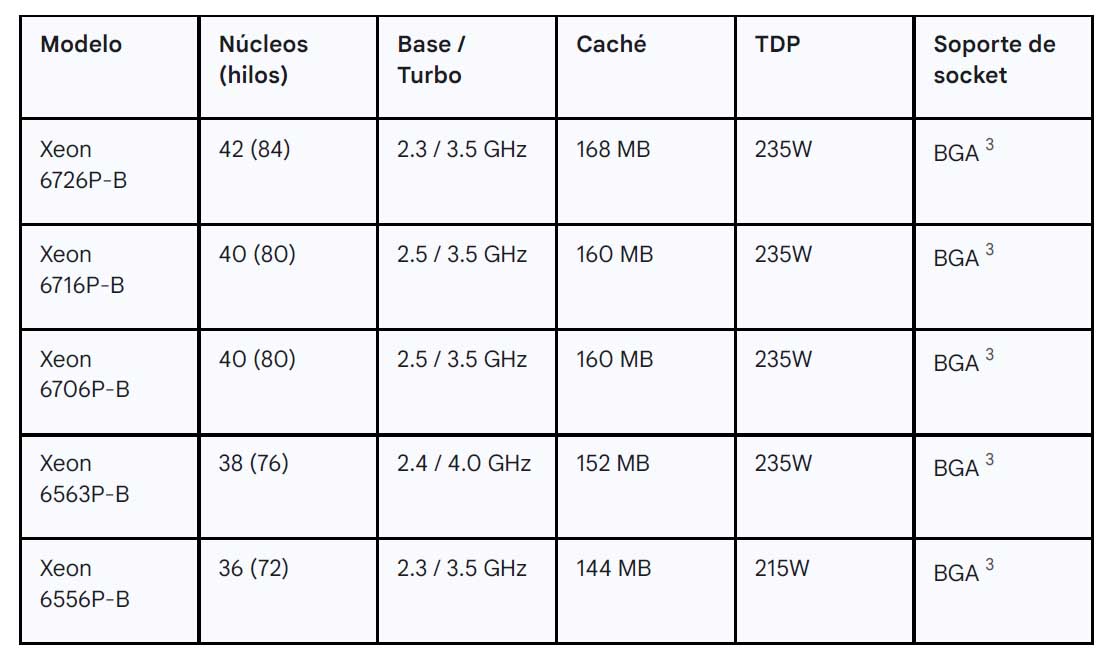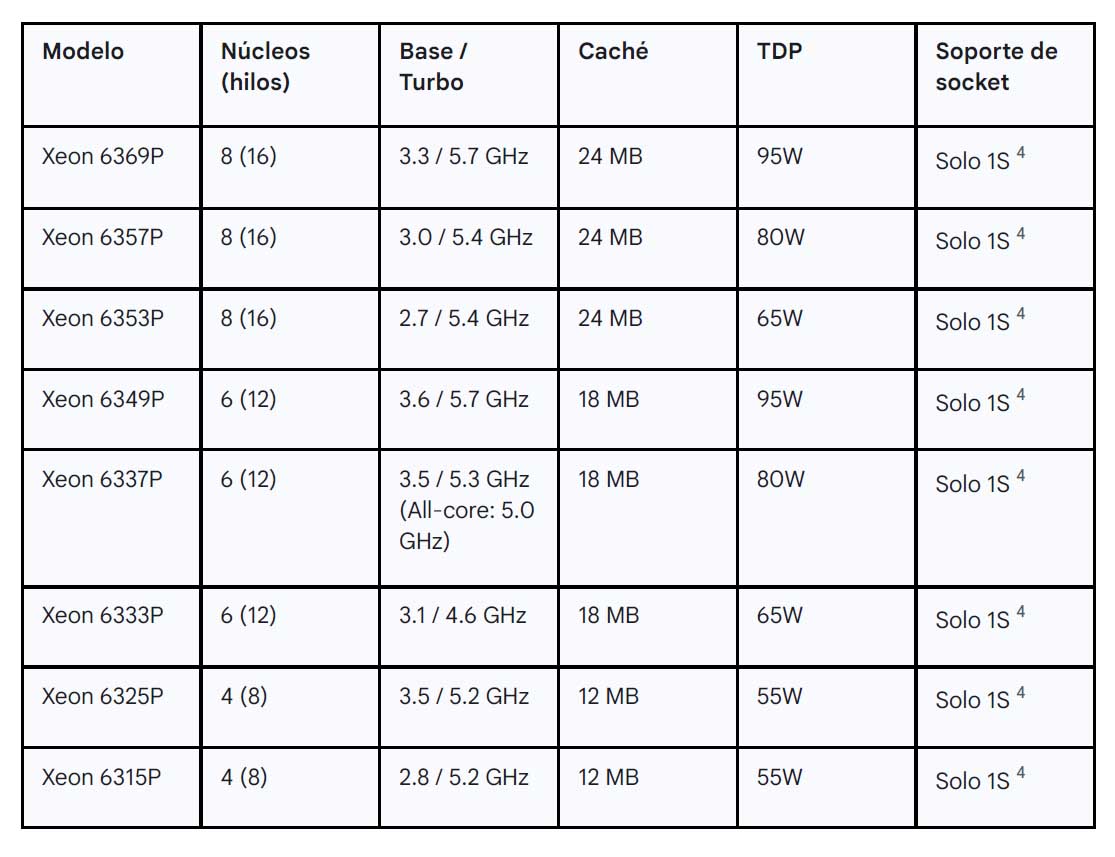Intel has marked a turning point with the launch of its 6th generation Xeon processors. This new family not only replaces the traditional nomenclature (Platinum/Gold/Silver) with a clearer system, but also introduces three major product lines under a single platform: Granite Rapids, focused on pure performance; Sierra Forest, focused on energy efficiency; and the Xeon 6 Entry (6300P) series, based on Raptor Lake Refresh, designed for entry-level workstations and servers. All share key technologies and allow for the construction of flexible, powerful, and scalable systems for any professional need.
Buy your Intel Xeon 6 processor now at the best price
Granite Rapids: Extreme Power with P-cores
Designed with high-performance cores (P-cores) based on the Redwood Cove architecture, Granite Rapids is positioned as the benchmark choice for data centers, intensive AI, HPC, and mission-critical workloads. Highlights include:
- Up to 128 cores per CPU and support for configurations of up to 8 sockets.
- Up to 192 PCIe 5.0 lanes and 12 DDR5 channels in its AP variant.
- Integrated accelerators: AMX, AVX-512-FP16, QAT, DSA, IAA.
- Advanced features such as Priority Core Turbo (PCT) and SST-TF to optimize performance under mixed and distributed loads.
Granite Rapids is available in two subfamilies: – SP (Scalable Performance): Designed for traditional servers (LGA 4710). – AP (Advanced Performance): For high-performance systems with massive memory (LGA 7529).
Intel Xeon 6 Processors: Granite Rapids-SP (Socket LGA 4710)
Intel Xeon 6 Processors: Granite Rapids-AP (LGA Socket 7529)
Sierra Forest: Radical Efficiency with E-cores
Based on Crestmont cores, the Sierra Forest architecture represents a paradigm shift: offering the maximum number of cores with minimum power consumption. Possible. Ideal for cloud environments, web servers, and parallel workloads:
- Up to 144 cores per CPU (without Hyper-Threading).
- Shared LGA 4710 platform with Granite Rapids.
- Low power consumption (~200–250 W) and efficient base/turbo frequencies.
- Support for AVX-VNNI and other modern AI extensions.
A future version of Sierra Forest-AP is expected with 288 cores, which would make it the densest x86 CPU on the market.
Intel Xeon 6 Processors: Sierra Forest-SP (Socket LGA 4710)
Granite Rapids-D: SoC Solution for Edge and Networks
The Granite Rapids-D variant adapts the P-cores to an all-in-one (SoC) form factor with integrated networking and edge computing capabilities:
- Up to 42 cores in a BGA package.
- Accelerators for vRAN, multimedia, and networking.
- Compact design, low power, and high performance.
Perfect for 5G base stations, routers, edge servers, and embedded solutions.
Intel Xeon 6 Processors: Granite Rapids-D (Socket BGA 4368)
Xeon 6 Entry (6300P): Affordable Power for Professionals
The series The 6300P uses Raptor Lake Refresh silicon to deliver high frequencies with efficiency and an affordable socket (LGA1700):
- Up to 5.7 GHz turbo with only 95 W TDP.
- Ideal for workstations, light virtualization, and small servers.
- AVX2 and VNNI instructions for light AI.
Intel Xeon 6 Processors: Entry – Raptor Lake Refresh (Socket LGA1700)
Integrated Key Technologies
- DDR5 up to 8800 MT/s, the fastest memory on the market.
- PCIe 5.0 and CXL 2.0, with up to 192 lanes and support for shared memory and accelerators.
- AI Acceleration: AMX and AVX-512 on P-cores, VNNI on E-cores.
- Advanced Security: Intel TDX, memory encryption, ECC, and resource isolation.
Conclusion
With the Intel Xeon 6, processor selection goes from being a gamble to a strategic decision. Whether it’s raw performance, scalable efficiency, edge connectivity, or affordable solutions, there’s a Xeon 6 for every need. All with a common foundation that reduces complexity and maximizes interoperability.
Intel hasn’t just caught up with its competition in cores: it’s redefined how they should be used.

